Throughout history, civilizations have always had various reasons to start a war. Tensions and conflicts not necessarily depended on territorial annexation or cultural influences, but also happened due to trade and diplomatic incidents.
Such was the case of the United Kingdom and the Chinese Qing dynasty, who had dynamic, turbulent, and conflicting viewpoints on how their diplomatic and trade relations should be arranged. It all led to the Opium War, also known as the Anglo-Chinese War.
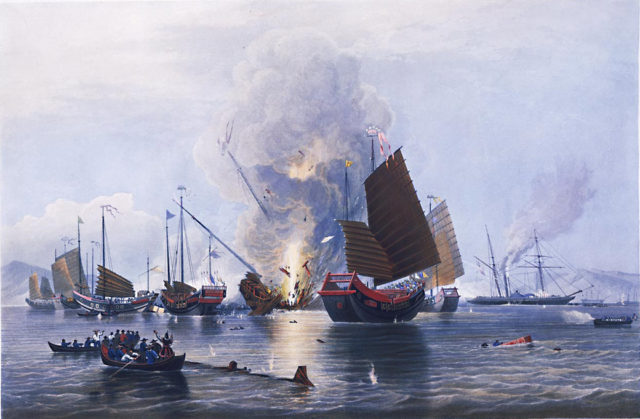
The First Opium War took place from 1839 to 1942 and was followed by a shorter one starting in 1856 and ending in 1858. The conflicts followed after the trade balance was lost among the European power and the Asian force over the 17-th and the 18-th century when Chinese goods were on the demand. Import of silk and porcelain grew in popularity in the west, and it was accompanied by an insistent demand for tea in Britain.
All along, for China, the market was virtually non-existent. The country was self-sufficient and some of their official statements had been that “there is nothing that European ships can bring across seas”.
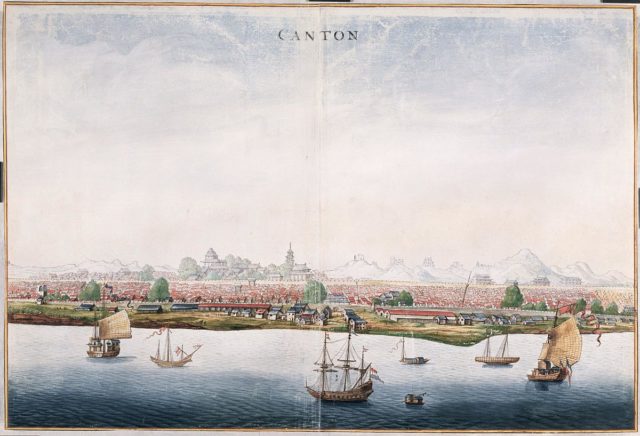
However, the 18-th century was a time when the majority of European empires had gradually expanded across the globe. They enforced their economies thanks to maritime trade, and it was much of a game to play. China needed to think of and develop new concepts on how to stay in this game and be part of a rather significant international trade system and network.
That led to the establishment of the Canton System in 1757 which had turned out extremely lucrative for the Chinese, as well as for the European merchants.

The canton system allowed monopoly trading rights to private Chinese merchants. The economy was not centralized any longer. It was a system with similar monopoly rights to which British India Company and the Dutch East company were already granted by their governments. The change meant a flow of silver for the Chinese merchants, as silver was the only compensation they asked for in exchange for their goods.
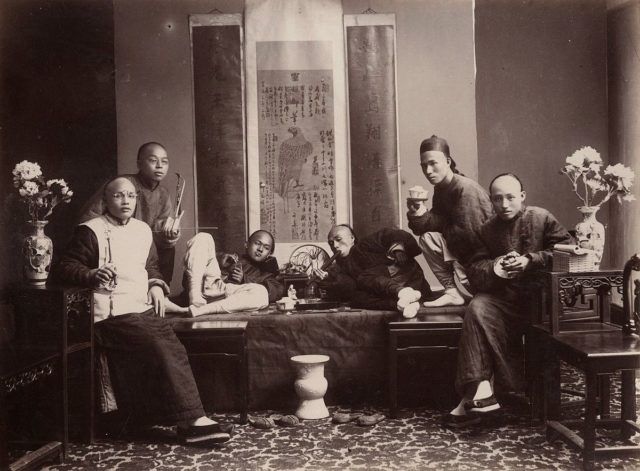
All was well until the British realized in 1817 that they could reduce the trade deficit if they turn their Indian colony profitable by counter-trading in narcotic Indian opium. The Qing administration would initially accept an import of opium, as it created an indirect tax on Chinese subjects, whilst Britan doubled tea exports from China to England. But the opium trade went out of control.
By 1838, the British were selling roughly 1,4000 tons of opium per year to China. Whether to legalize the narcotic or not, was a huge and ongoing debate among the Chinese officials, but it was continually rejected. There were serious consequences of the opium import in China, hence enforcements were necessary for China to thrive.
Lin Zexu
The opium gradually grew as a problem that nobody could disregard any longer in China. The situation escalated in 1839 when the Daoguang Emperor rejected to legalize and tax opium. He also delegated viceroy Lin Zexu to take advanced measures.
Trades were closed down and abolished, and Lin also confiscated around 20,000 chests of opium (app. 1210 tons) without offering any compensation to their trade partner. He also started to confine foreign merchants to Chinese quarters.
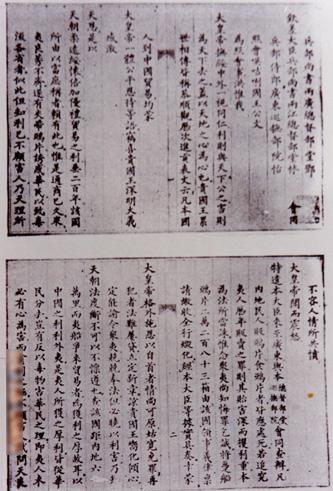
Those had been some of the first radical steps that the Chinese made to eradicate the opium trade. Further on, Lin also sent an open letter to Queen Victoria questioning the moral reasoning of the British government. He questioned how could China possibly profit from opium, as the same substance was prohibited on the territory of Britain itself.
In his letter, he wrote: “Your majesty has not before been thus officially notified, and you may plead ignorance of the severity of our laws, but I now give my assurance that we mean to cut this harmful drug forever”.Despite this effort, the letter never reached the Queen. Allegedly, it was lost during transit.
Lin was much dedicated in his mission to eradicate the opium trade. At another occasion, he also stated: “If the opium trade is not stopped, in the next few decades we shall not only be without soldiers to resist the enemy but also in want of silver to provide an army”.
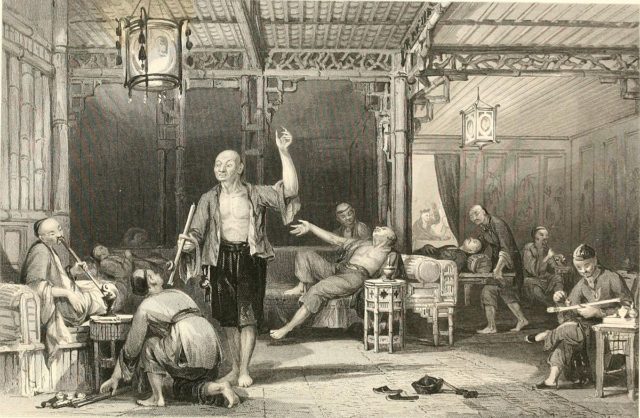
The gunboat diplomacy
The enforcements taken by the Chinese authorities were not kindly greeted by Britain. Although Britain never officially denied the China’s right to control imports of the dangerous narcotic, aggressive objections were not excluded as an answer to the unexpected incidents.
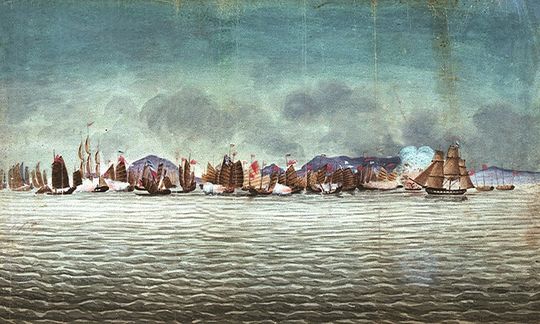
Soon enough, Britain demonstrated the grandeur of their navy with a quick and decisive defeat of Chinese boats. Later, their tactic was regarded as a gunboat diplomacy.
It was a conspicuous display of what a naval power Britain has had, implying a direct threat to warfare and supremacy. On the Chinese side, there was a revelation that they were not as strong as they considered to be.
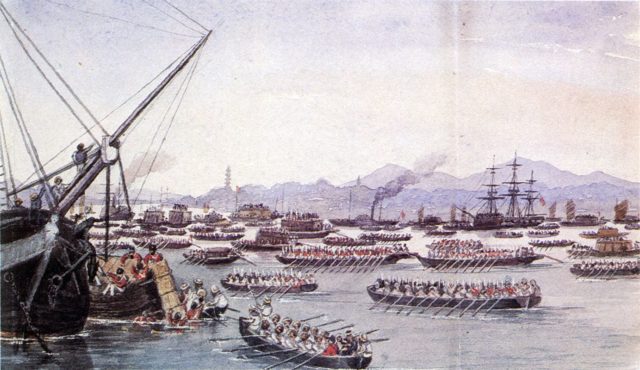
The tension and the unrest between the two countries did not stop until the signing of the Treaty of Nanking, or what the Chinese considered an unequal treaty that granted far more rights to Britain. It also allowed the Britons to take control over the Hong Kong Island.
The treaty failed to better the relationship between the two nations and it led to the second Opium war. The whole conflict was a major blow for the Chinese reputation at the time, however, it marked the start of the modern Chinese history.
